“OK Google, tell me where I can go to lunch today.”
And just so I don’t offend the Apple aficionados:
‘Hey Siri, is it going to rain today?”
What do these have in common?
They’re classic examples of the rising tide of voice search, and they signal a change in the SEO landscape that you can’t afford to ignore.
And if you take a moment to look, you’ll find that the voices telling you how to optimize for voice search are many and varied.
But what actually works?
Is there actually a way you can take steps in the right direction to help optimize people who rely on voice searches?
I believe there are, and I want to share them with you.
Before we get started improving your SEO though, I want to show you some overwhelming evidence that voice search is taking over.
What is voice search, and why bother?
The practical applications of voice search are still relatively new, but the feature itself has taken the world by storm.
These days, all you have to do is tell your device what you’re looking for, and it will do the searching for you.
Anyone with a smartphone or smart home device no longer has the Internet at their fingertips.
They have it at the tip of their tongue.
And let’s be honest, that’s just plain cool.
We’ve reached the “final frontier” of search technology unless telekinesis is discovered (which is highly unlikely).
But more to the point, in a rather illuminating study, Stanford University recently discovered that speech recognition technologies are now three times faster than typing.
So for businesses, this is a matter of user experience and delivering convenience to your customers in a rather innovative way.
And it’s already sending waves through the SEO world.
This is partly because these technologies just keep getting better and better with time.
Recent reports by Microsoft tout that their speech recognition has only a 5.1% error rate and works with a vast variety of languages.
If you use Microsoft’s Cortana software, that’s good news.
But they’re not the only ones seeing success.
Google is on par with Microsoft, if not barely edging them out:
That means not only is voice search helpful, but it’s also competitive.
And when Google, Microsoft, and other major tech companies start competing, you can pretty much guarantee that you’re going to see some amazing changes in the coming years.
The inner workings of voice search are both surprisingly human and technical at the same time.
For the first time, computers can hear our voices and guess our true intentions with a staggering amount of accuracy.
Algorithms like RankBrain, which was confirmed in 2015, are already blowing our expectations out of the water with its ability to predict intent.
But speech recognition isn’t the only aspect that’s been improving.
Voice search systems are now able to do much more than just give you the top-ranked answer:
So the evolution of speech recognition is just one aspect to consider.
Amazon’s Echo devices can now perform over 12,000 different skills, which means they’re becoming a much more integral part in how we use the Internet.
And the sales numbers of these smart home systems only serve to drive that point even further.
In 2017 alone, more than 25 million smart home devices were sold and 11 million of those came in the final quarter.
For a technology that’s still in its infancy, that’s an impressive adoption rate.
Voice search is in our homes, on our phones, and even in our browsers now.
And that means people must be using these features on a regular basis for both work and leisure.
But this also means that if you’re not at the top of a search engine’s rankings, you probably won’t ever see results from voice search.
In fact, even being on the front page might not be good enough anymore.
In essence, this means that the number one spot on Google, Bing, and any other search engine is now more important than ever.
And since almost 40% of voice search users have looked up something online with voice search, you can rest assured that this trend will continue.
2017 saw a staggering growth of 178% in the utilization of voice search, and I’m confident that the coming years will see that figure grow even more.
So what does this mean for your SEO?
Besides needing to rank as the number one page, it means you have a lot of work ahead of you.
And to start things off, it means the basics of SEO are more important now than ever before.
Start with solid SEO
It may surprise you that I start off with the basics, but honestly, it shouldn’t.
The honest and hard truth about SEO is that it takes forever.
It took me years to start seeing large amounts of organic traffic for my brand, and I’m just one example.
Many fledgling companies that are leading innovation in their industries are fighting the giant, established corporations whose budgets dwarf theirs.
And because they’re newcomers on the playing field, they have to play the long game if they want to win.
This is especially true when it comes to voice search because the climb just got that much steeper.
In an enlightening study, Backlinko did some extensive tests on Google Home’s search results.
What they found won’t surprise any SEO enthusiast, but they prove the necessity of SEO basics quite emphatically.
For example, one of their findings was that load time affected performance significantly:
The top results of their voice search experiments had an average load time almost half of the top-ranked website on a traditional search.
And that means the already vital aspect of load times just upped the ante on-site owners.
Now, you’re not only trying to keep your visitor’s attention.
You’re also trying to grab the attention of a coveted voice search algorithm.
But that’s not all.
Much like with traditional search engine searches, voice search results preferred long-form content by a longshot.
This validates the message that many other marketers and I have been preaching for years.
The longer and more thorough your content is, the more likely you are to start ranking higher.
It may take you more effort, but it’s clearly worth it in the case of optimizing for voice search.
What’s more, it was also shown that how well your content performs on social media does play a role in your ranking on voice search.
The average for voice search results may seem rather high, but if you’re creating and sharing the best content, it’s just a matter of time before you see numbers like this.
And the more consistent your efforts, the sooner they can start paying off.
So, we’ve seen that these three basic elements of SEO do indeed affect your ability to rank for voice search.
Those are just three examples.
The Backlinko study I’m citing goes on to show a dozen more ways that basic SEO features affect your chances of becoming the result of a voice search.
And perhaps more importantly, numerous sources have shown that your overall page rank seems to be the top factor that affects your chances of hitting this coveted spot.
An impressive yet daunting 99.58% of voice results are from the top ten pages in a traditional search.
Which means not ranking in the top ten gives your page a mere 0.42% chance spread out with millions of other search results.
If you win with those odds, you could probably just buy a lottery ticket and retire instead of fight for SEO rankings.
You see my point here.
The basic SEO practices are where you should start, simply because without them you’ll have a minuscule chance of being the top voice search result.
So the first and most important step for anyone interesting in cracking the voice search code is to learn and implement the basics of SEO
By starting here, you’ll have solid foundations for your brand to grow on.
And once you start to see results, you can implement some of the more specific practices when it comes to optimizing for voice search.
Focus on conversational keywords
Once you’ve settled in on your basic SEO, you’ll want to take a closer look at your keywords to make sure that a voice search can pick them up.
This is because search engines like Google have started the practice of looking for natural language when providing the top results.
While this is a rather technical representation of that process, really what it boils down to is how conversational your content is.
If you can keep your content easy to approach and read, Google will pay more attention to you.
Finding a way to be conversational, even for more serious brands, is a challenge that’s unique to voice search.
And this trend is only increasing because as of 2017, the majority of phrases used in voice search were considered “natural or conversational.”
Seven out of ten voice searches are made with the type of speech we use today.
That includes contractions, slang, and colloquialisms that may not come naturally to your writing style.
But if they get put into a search engine, that means they have the potential to be a keyword.
So how do you implement these keywords without ending up on r/FellowKids?
Start by conducting some thorough keyword research.
Then, dig into some of the keyword usage and trends of voice search.
For example, look at how most voice searches are actually being phrased as questions.
People using voice search are asking search engines for advice on different elements of their lives.
Questions like “how do you cook a turkey?” or “where is the best burger in town?” are being asked to devices that use voice search.
And as you can see, companies are lagging behind in their effort to create keyword-optimized snippets that seek to answer these questions.
Which means there’s plenty of room for your brand to start making up the difference.
And one of the easiest ways to start with this trend is to use trigger words, as more than 20% of voice search results begin with these words.
That might not sound like a lot but think of the vast areas of application even the top trigger word could have for your business.
Let’s say you sell shoes.
Here are some examples of posts you could create that might lead to a hit from voice search using just the word “how:”
- How to size for shoes without the right tools
- How to quickly replace your shoestrings
- How to tie your shoes as quickly as possible
Do you see how all of these might come up in a voice search?
All it takes is someone to say “OK Google, teach me how to tie my shoes as quickly as possible” and you have a potential hit.
You get more exposure simply because you emphasized a trigger word in your post.
And these are just a few examples.
There are more studies that provide lists of the popular words used in voice searches, like this one from Ahrefs:
While many of these suggestions are still young, they’re a great place to start when considering your keyword usage.
And as voice search continues to evolve, so should your keywords.
SEO is a process that will never end and you have to treat it as such.
As long as you stay vigilant in your efforts to continually optimize for conversational keywords, you’ll increase your chances of popping up in a voice search result.
Create content optimized for featured snippets
Once you’ve mastered your SEO basics and fine-tuned your keywords, it’s time to look into the final big element of optimizing for voice search.
Aside from a strong domain and content, you need to create a way for search engines to digest and regurgitate your content easily.
That goal is accomplished by optimizing your content for the featured snippets that often appear in the “rank zero” position above the normal search results.
This is an element that you’d be unwise to ignore because Google has explicitly stated that featured snippets help with mobile and voice search rankings.
In practice, these featured snippets are often used to help users find quick answers to questions, like in this example:
In a regular search, this result would let you quickly skim for your answer and be on your way.
With a voice search, however, the search engine has to give an audible response to the query.
That means these snippets are often the result that’s read aloud to the user.
If your content isn’t set up to easily fit into a featured snippet, then even a highly-ranked page could be passed up for the next result.
It’s also worth noting that these featured snippets have started to display video too, which means your written content isn’t the only option.
To put it simply, your goal should be to provide easily digestible and repeatable information that can be evaluated and shared quickly.
This bears up under the microscope of various marketing experiments.
Many SEO blogs have started recommending that content creators start considering length more closely when it comes to optimizing for these featured snippets.
If you’re used to writing three to four sentence paragraphs, it’s recommended that you change that practice immediately.
Even lists are feeling the burn, with a maximum of only eight items and potentially only 64 words.
If you’re used to creating step-by-step guides in a list format, you’ll need to change your approach for voice searches.
What’s more, the Speech Guidelines that have been published by search engines like Google seem to indicate less than 30 words is best for any piece of content you think could be a snippet.
I count 44 words in that snippet, and Google says that’s too long.
Whereas in this example, Google prefers the shorter snippet even though the answer is incorrect:
This result is only ten words, so it’s clear why it would be optimized.
It’s shorter, more to the point, and thus deemed a better answer by the search engine’s algorithms.
And while other factors like authority will factor into the actual answer given by Google, this clearly illustrates the point that succinct is always better.
Now, this trend toward shorter replies might seem odd to some.
After all, the replies are being read aloud.
Why can’t they be longer?
You have to remember that usage of voice search is already quite varied.
Most of the searches performed by users are in public or with others present, which means that a short-and-sweet result will provide the smallest amount of interruption.
This is where brands that have stiffer, more professional voices start to suffer.
If you’re unable to quickly and clearly address a concern or answer a question, you’ll have a harder time ranking in a voice search.
This may mean that you need to reevaluate some of the more foundational elements of your voice in the future.
If you think this trend won’t affect your industry, I invite you to think again.
More and more sites are adopting the practice of creating featured snippets that help bolster their ability to reach “rank zero” and provide useful information from a voice search.
In just a few years, interest in featured snippets has tripled.
With its growing popularity, it’s quite possible that your competitors are already optimizing for this feature and you should be too.
And aside from simply shortening your content, there’s actually one other element you can focus on to try and edge out the other results on a search engine.
That method is to go back and brush up your site’s FAQs.
You may not have heard much advice about your FAQs lately, but the importance of this content is making a comeback.
Since they’re already designed to be custom-built phrases meant to answer common questions about your products, industry, or brand, it’s natural that they would take the limelight when it comes to featured snippets.
It’s the best place for your visitor or a search engine to find answers, which means you need ways to anticipate what questions they will ask.
One way to accomplish that is by using a service like Answer the Public.
All you have to do is enter your keyword, and then their system will give you the most searched for questions that center around that word.
While it’s marketed as a tool for PR firms, it also has a great application for marketers when it comes to voice search SEO efforts.
Once you get a list of questions to answer from Answer the Public, I also recommend checking out a service like StoryBase to double check for any missed opportunities.
Much like Answer the Public, StoryBase will let you find the sweet spot between your message and what users are actually searching for.
If you optimize your content and FAQs according to these questions, you’ll be more likely to land in a featured snippet down the line.
And that means your SEO will be that much better for a voice search.
Conclusion
Voice search may be newer, but it’s already playing an important role in the way SEO is accomplished.
With yearly improvements and an astounding adoption rate, this trend is one that you simply can’t ignore.
If you want your brand to act as an authoritative source for voice search results, you have to start by implementing basic SEO practices.
Optimize your on-site elements like word count, time to load, and image use to start building your SEO efforts from scratch.
And don’t neglect off-site elements like backlinking or social media sharing.
All of these efforts will lay the foundation for a search engine to start ranking you higher.
Then once you get the basics covered, start optimizing your content with conversational keywords.
Since voice search queries are typically conversational in nature, this helps set you up for success as more questions are asked.
Finally, make sure you create content that will fit neatly into a featured snippet.
These “rank zero” results are often the top choice of voice search results, which means they’re exactly where you want to be.
Just remember that all SEO takes time.
You won’t be a success overnight.
But in a few years, you can dominate your space with ease.
What tips or tricks have helped you rank for voice search?





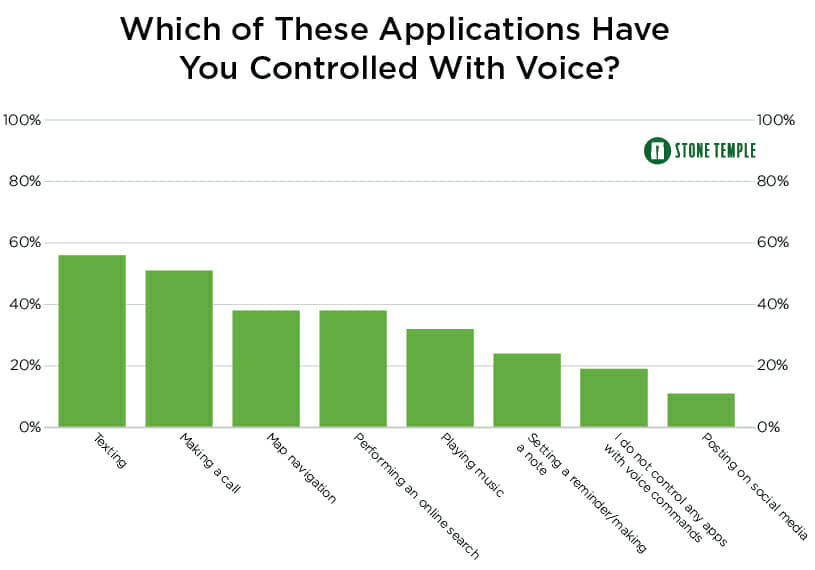



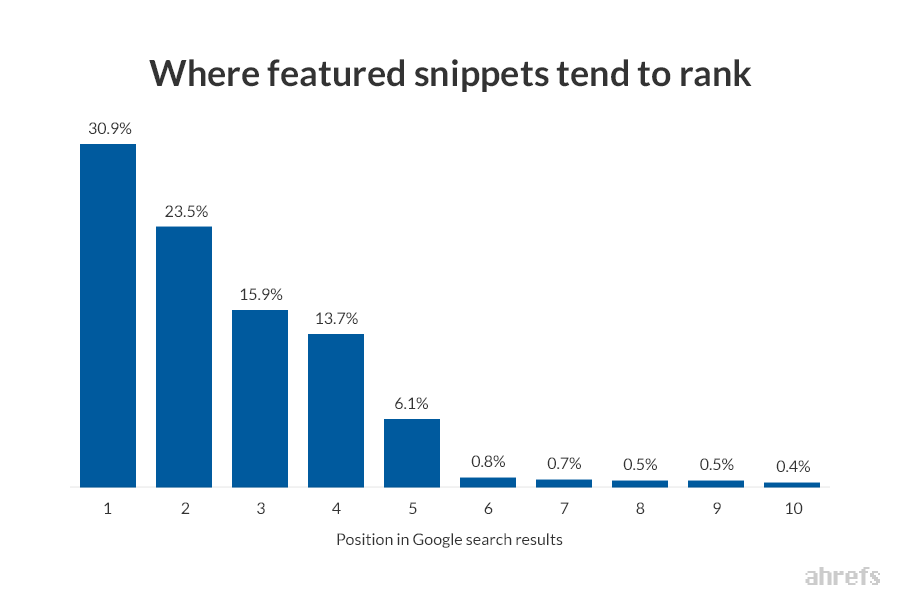

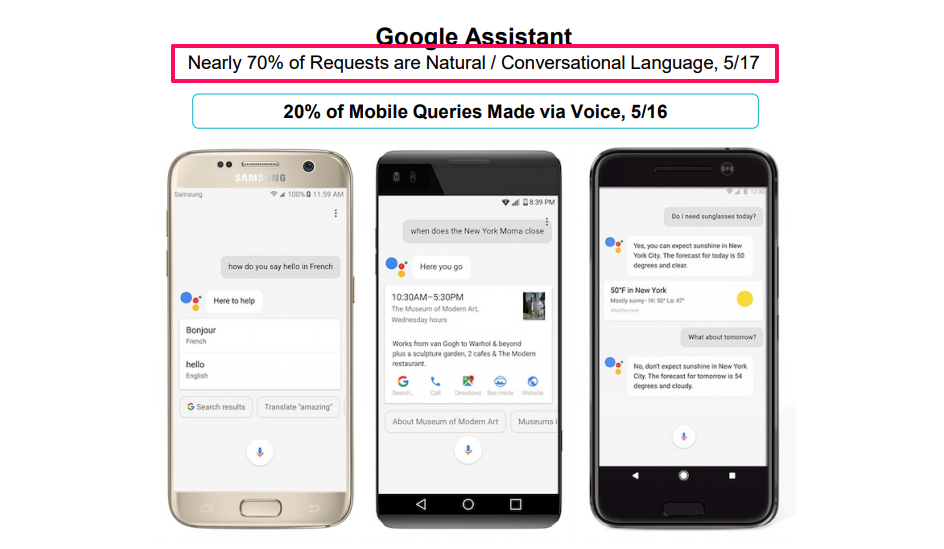
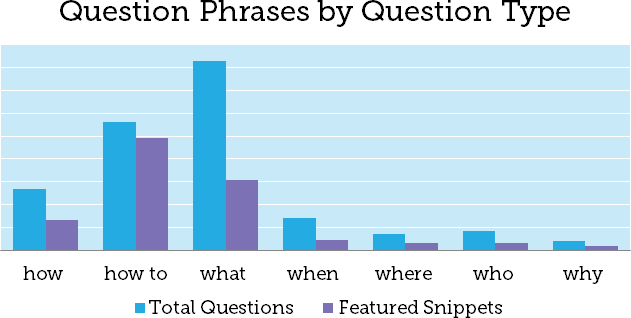
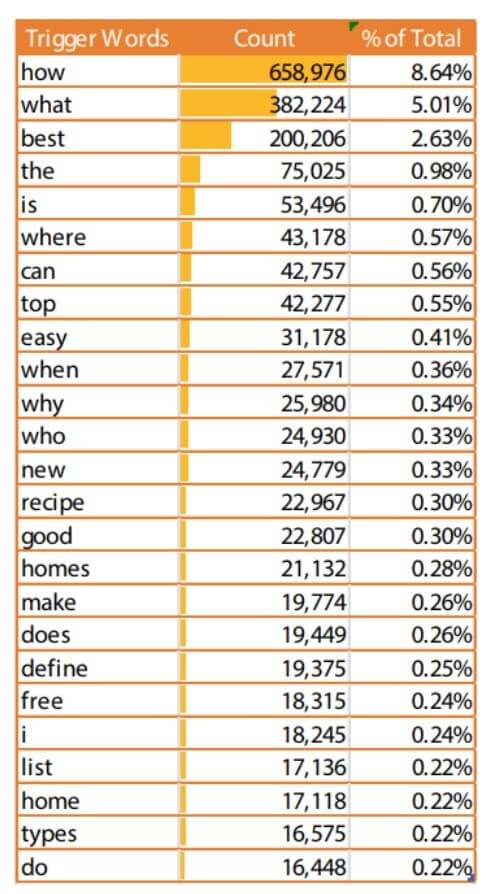
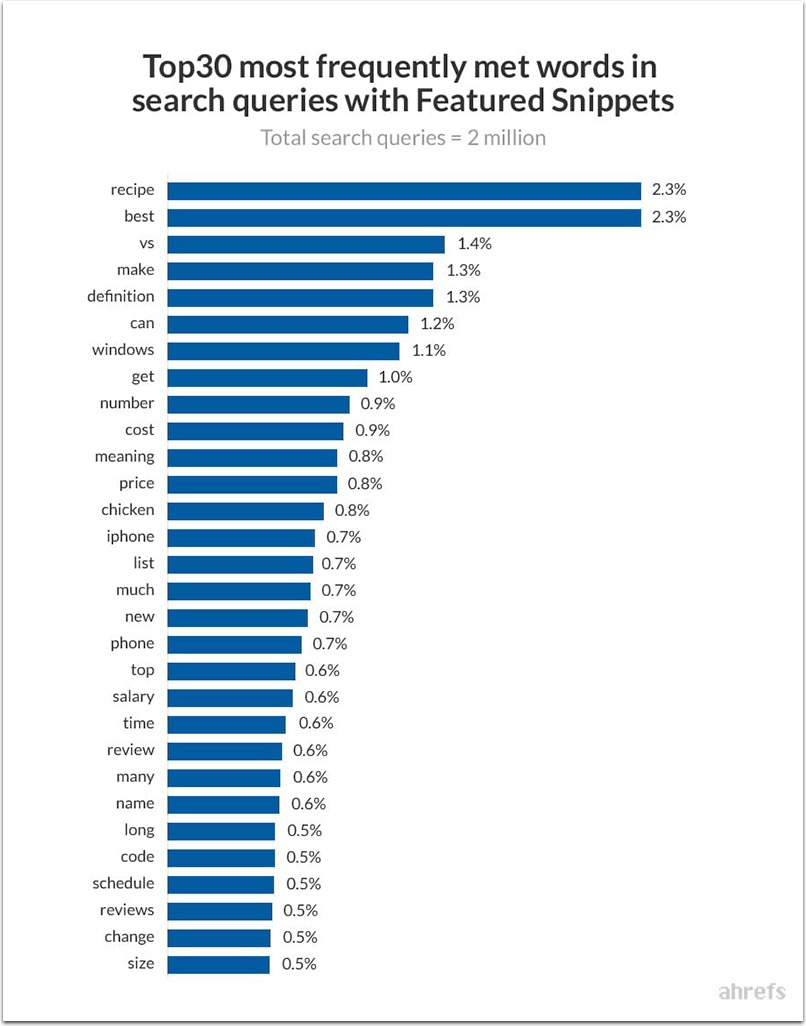
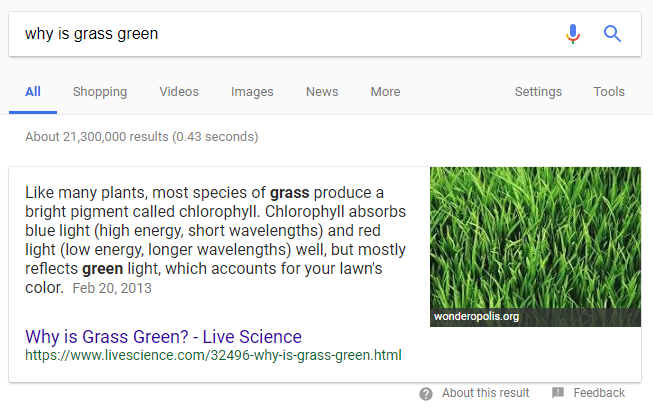




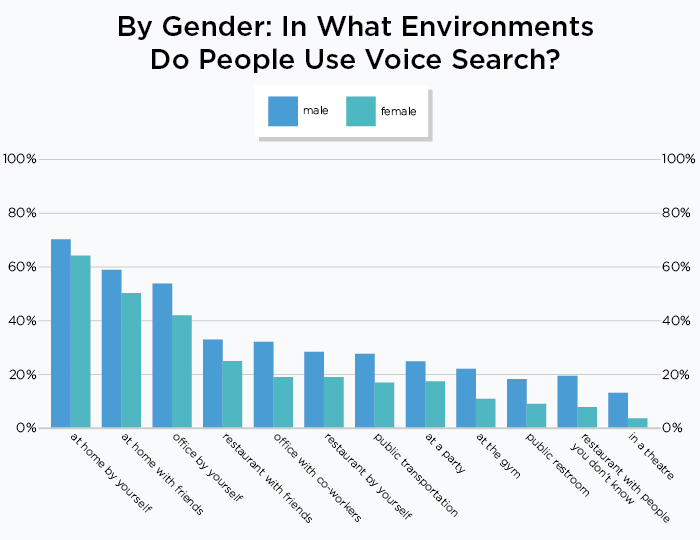



Comments (24)